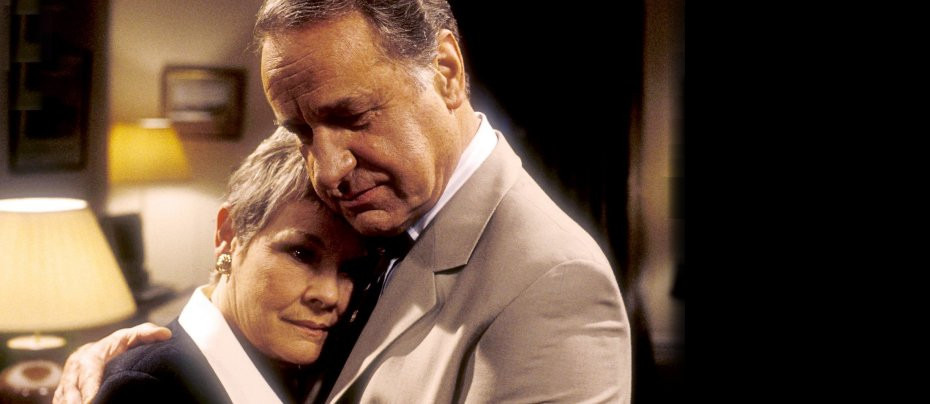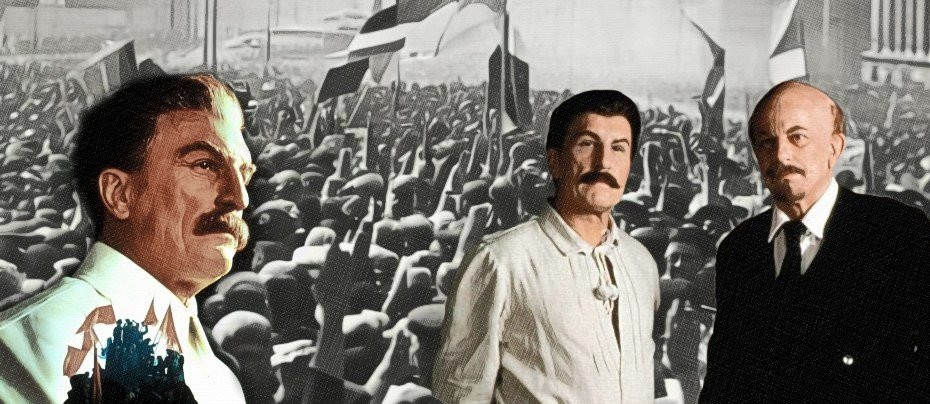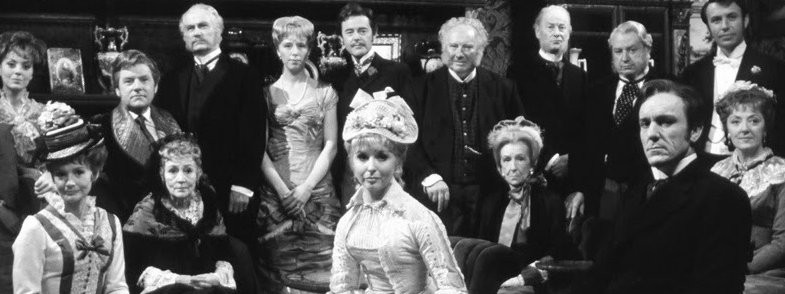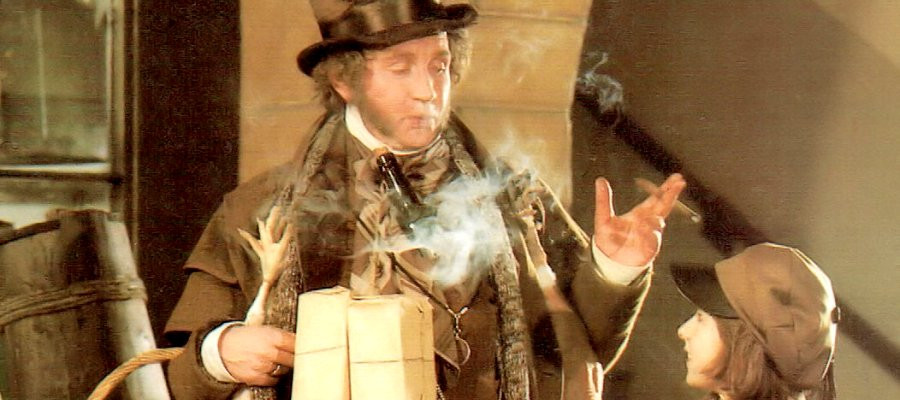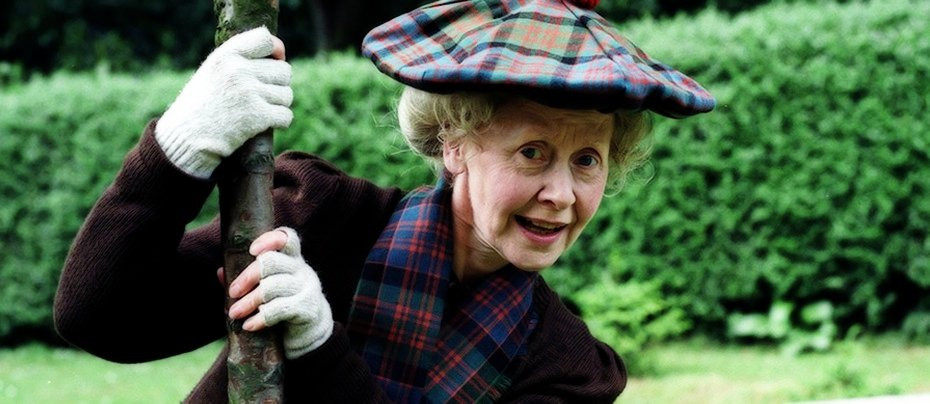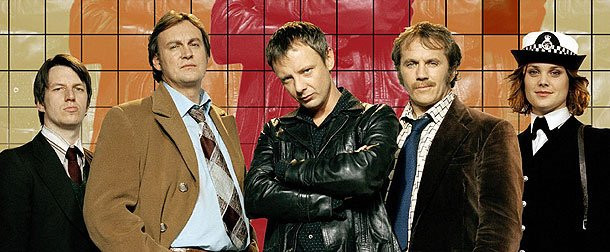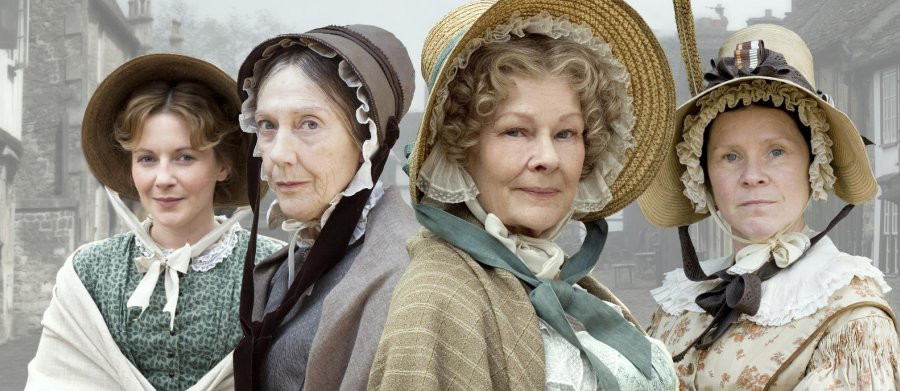
Cranford
1951 | 1972 | 2007 - United KingdomCranford is a gem that should not be missed by fans of period dramas or anyone seeking quality television.
Cranford is a captivating BBC television series that aired from 2007 to 2010. Based on the novels of Elizabeth Gaskell, this period drama takes viewers on a journey to the fictional Cheshire town of Cranford during the late 1830s and early 1840s. With its stellar cast, exquisite costumes, and affectionate plotlines, Cranford is a delightful and well-crafted series that effortlessly transports viewers to a bygone era.
Elizabeth Gaskell was born Elizabeth Cleghorn Stevenson in 1810. She was the youngest of eight children, although tragically, only she and her brother John survived infancy. Despite this tragic loss, she was known for her beauty and impeccable grooming, possessed a kind and gentle nature, and was always considerate of others. Her temperament exuded calmness and collectedness, while her joyous innocence allowed her to appreciate the simple pleasures of rural life.
A significant part of Gaskell‘s childhood was spent in Cheshire, where she resided with her aunt Hannah Lumb in Knutsford at The Heath, a grand red-brick house now known as Heathwaite. The town held such importance to her that she immortalized it as Cranford.
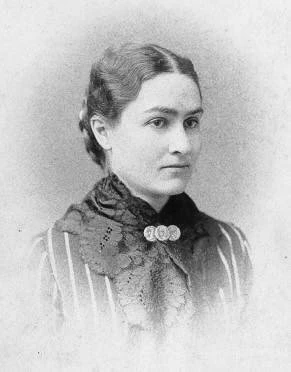
In March 1835, Gaskell embarked upon documenting the growth and development of her daughter Marianne through a diary. Within its pages, she delved into the intricacies of parenthood and cherished the value she placed on her role as a mother. She also discussed matters related to faith and later explored the relationship between Marianne and her sister Meta.
Demonstrating considerable literary talent, in 1836, she collaborated with her husband on a collection of poems titled Sketches Among the Poor, which found publication in Blackwood's Magazine in January 1837. Her skill as an author gained further recognition when William Howitt included one of her contributions, Clopton Hall, under the pseudonym of "A Lady", in his work Visits to Remarkable Places published in 1840. This marked Gaskell's first solo-written and published piece.
Her first collection of short stories, titled Libbie Marsh's Three Eras, was published in 1847 under yet another pseudonym; "Cotton Mather Mills," in Howitt's Journal. Cranford was initially serialized in Household Words magazine from 1851 before being released as a book with some minor revisions in 1853. Over time, Cranford gained popularity and throughout the 20th century, it received numerous adaptations for stage performances, radio broadcasts, and television shows.
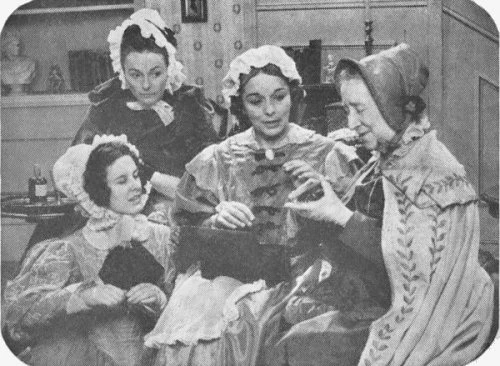
The earliest television adaptation was by the BBC as a single play in 1951. As was customary at the time, Cranford was broadcast live when it was shown on Easter Sunday, 25 March, and the cast re-performed it the following Thursday at 8pm. As a result of the live performances no recording was made. Fortunately, it was reviewed in the Birmingham Mail (Monday 26 March 1951) - although the critic was not credited.
'Television's Sunday evening theatre performances having lately been mainly selected from the works of foreign playwrights, it was a refreshing change to return last night to the English scene, and, moreover, to the England of a bygone and leisurely age.
A dramatisation by Martin Coleman of Mrs Gaskell's novel "Cranford" adapted for television by Jon Manchip White, made an excellent subject for fireside audience enjoying the relaxation of a holiday week-end.
There were no major social problems to tax the brains or tense dramatic situations to rack the nerves. The characters were much too conscious of their social standing to associate themselves with such vulgarities and were sufficiently distant from the period - the 1830s - to regard with an amusing tolerance the prudery and petty snobberies that excited the ladies of Cranford.
By a judicious selection of significant scenes, the production succeeded admirably in transferring to the screen the essence of the novel. The dialogue and the comings and goings of the characters were so contrived that, although they were never taken beyond Miss Matty's house, viewers enjoyed the illusion of watching the doings of the whole village.
Gillian Lind played with charm and restraint the part of Miss Matty, the former rector's middle-aged daughter, who maintained the conventions of gentility in the face of financial disaster.'
Other performers in the play included Betty Marsden and Fabia Drake, the latter of whom recreated the same character 21 years later when the BBC produced a four-part series. However, writing in The Stage on 7 December 1972, Patrick Campbell was particularly scathing of this production:
‘Except for a characteristic desire to pay respect to Elizabeth Gaskell (or, more likely, that her name is next on the perpetual rota of classic authors), I can see no good reason for a version of Cranford at this time. I will admit Lord Houghton's dictum that Cranford is the finest piece of humoristic description that has been added to British literature since Charles Lamb." I will not quarrel with Charlotte Bronte, a protege of Mrs. Gaskell, who wrote of a letter from the author, “It was as pleasant as a quiet chat, as welcome as spring showers, as reviving as a friend's visit; in short, it was very like a page of Cranford."
Yet none of this eulogy makes Cranford a suitable case for treatment. What has emerged at the half-way stage of a four-part adaptation is a series of thinly connected episodes concerning characters who cannot exist outside a reader's imagination stimulated by Mrs Gaskell's powers of narrative.
Cranford is not a story of real people. It is further removed from the world than any other community that the nineteenth century novelists (architects of the Great Age of English Literature) have given us. The medium of drama and of television drama in particular will never do it justice.
Mrs Gaskell wrote comparatively little dialogue for Cranford, so little that almost all of it has found its way into Michael Voysey's adaptation. The narrative, on which the novel's reputation rests, has emerged as a scrap book, as an album of nineteenth century family pictures mildly interesting in themselves but having nothing but the binding to give them unity.
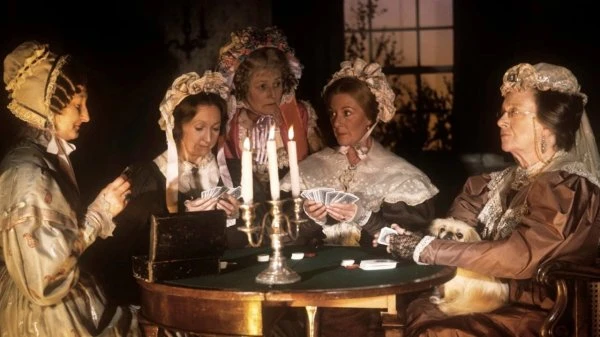
Daphne Shortman's designs lent a certain period atmosphere to the proceedings, but the direction of Hugh David managed somehow to convert the subtle, satirical humour of Mrs. Gaskell into something much nearer the Whitehall farce. There is little unity of style in the acting. Of the famous quartet of Cranford ladies, Fabia Drake is a stereotype Mrs Jamieson, Ann Penfold a retiring and (quite rightly) aloof Mary Smith and Pat Coombes a rather uncertain Miss Pole. Which leaves Gabrielle Hamilton to make of Miss Matty something as near to Mrs Gaskell's portrait as the restricted canvas will allow; a thoughtful and logical characterisation this, that will remain in the memory when the serial itself has been forgotten.
Among the men, the disparity of style was even more startling. Mr Holbrook (Clifford Parrish) belongs to Restoration comedy while Jem Hearn (Brian Croucher) might have come straight from the Theatre Upstairs. If the BBC serial department really is scraping the bottom of the nineteenth century barrel, what about tapping a cask of more recent vintage?’
The BBC’s most recent adaptation (at the time of writing) fared much better.
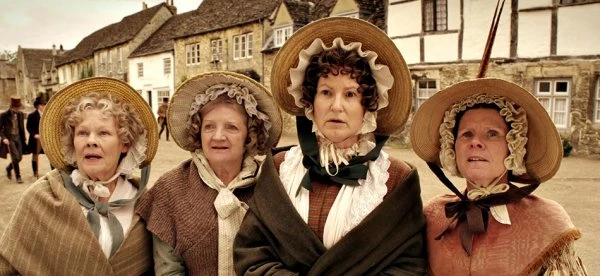
One of the greatest strengths of the 2007 version of Cranford is its outstanding ensemble cast, which includes renowned actors such as Judi Dench as Miss Matty, the rector’s youngest daughter, Eileen Atkins as the domineering elder daughter of the former rector, Imelda Staunton as town gossip Miss Pole, Francesca Annis as the local grandee Lady Ludlow, Lesley Manville as the beautiful housekeeper Mrs Rose and Julia McKenzie as Mrs. Forrester, an officer's daughter and the widow of a major. These talented performers bring their characters to life, imbuing them with depth, nuance, and emotional subtlety. Judi Dench's portrayal of Miss Matty Jenkyns, in particular, is nothing short of exceptional. Her mesmerizing performance effortlessly conveys the character's vulnerability, resilience, and unwavering loyalty.
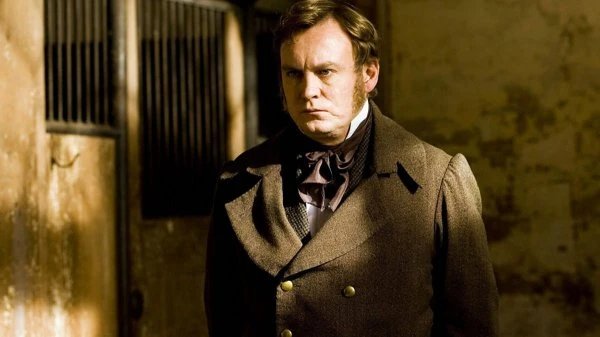
Among the male cast are Michael Gambon, Philip Glenister, Jim Carter, Greg Wise, Tim Curry, Martin Shaw and Jonathan Pryce.
James Walton of The Daily Telegraph was prompted to write, "Heidi Thomas’s* script subtly brought out a more hidden element of Cranford life: that these people are simultaneously proud and ashamed of their provincial status. She also manages the Mrs. Gaskell trick of making the town itself the main character. Admittedly, Cranford features more Annie Walkers and fewer Elsie Tanners than early Coronation Street. Otherwise, the power of the matriarchs, the centrality of gossip and – when the chips are down – the touching sense of community, are all winningly similar. So too is the ability to subject the characters to clear-eyed scrutiny, while still retaining an obvious affection for them."
*(Heidi Thomas has been writing screenplays since 1987 and is best known today as the writer and creator of Call the Midwife.)
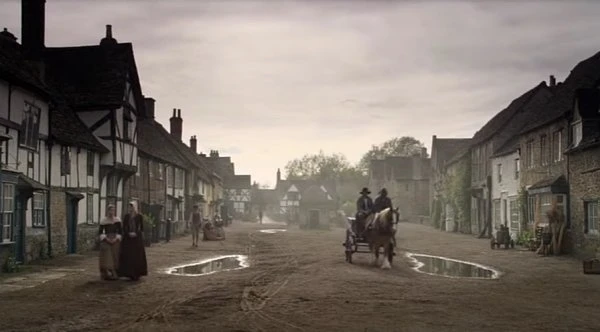
Another of the strengths of Cranford lies in its attention to historical accuracy. The meticulous production design and costuming transport viewers back to a bygone era, immersing them in the vibrancy of Victorian England. From the opulence of the local manor to the simplicity of the townsfolk’s attire, every detail is meticulously crafted to create a visually captivating experience. The authenticity with which the series captures the time period adds depth and credibility to the narrative.
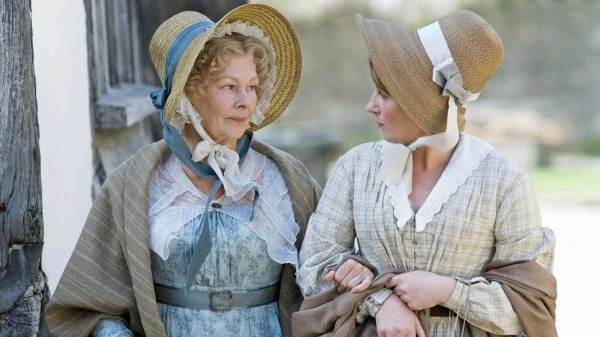
However, it is the heartfelt storytelling that truly sets Cranford apart. The series masterfully weaves together multiple storylines, exploring the interconnected lives of the townspeople. The themes of love, friendship, and loss resonate deeply, offering moments of both laughter and tears. Cranford tugs at the heartstrings, reminding viewers of the human experiences that transcend time and place.
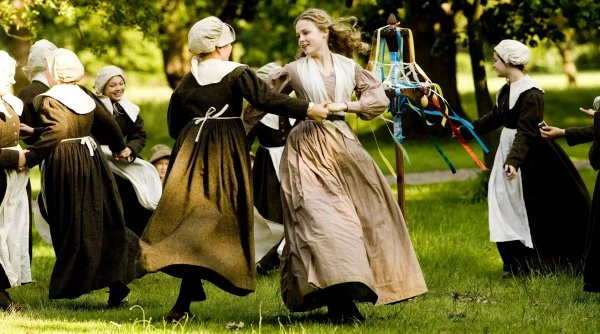
This is a gem that should not be missed by fans of period dramas or anyone seeking quality television. With its outstanding cast, meticulous attention to detail, and poignant storytelling, Cranford transports viewers to a time and place that is both familiar and otherworldly. Whether you find solace in the beautiful British countryside or delight in the intricacies of human relationships, Cranford is a series that will leave an indelible mark on your heart.
Published on October 1st, 2023. Written by Laurence Marcus for Television Heaven.


